Transcripts of interviews with history makers and witnesses

July 16, 1992 Ken Stein Interview with Ambassador Roy Atherton, Washington, D.C., July 16, 1992 Alfred Roy Atherton Jr. participated in U.S-Soviet Middle East negotiations and formulation of the Rogers Plan, 1969; Kissinger-Ismail secret meeting…
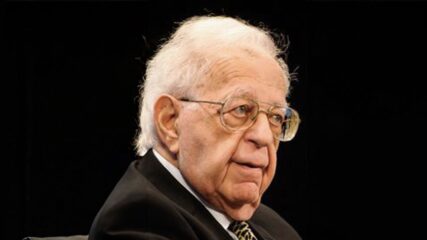
Serving as director general of the Israeli Ministry of Foreign Affairs in 1976-1977, Avineri recounts Romanian overtures to Rabin for a visit to gauge interest in another agreement with Egypt. He estimates that Rabin and Begin both took strategic considerations in hand in negotiating; he is highly critical of Carter’s political naivete.

In the 1975-1979 period, Hanan Bar-On served in the Israeli Embassy in Washington and then for seven years as director general of the Foreign Ministry. His insights highlight the building strain that evolved between Jimmy Carter and Menachem Begin. From an Israeli viewpoint, he recalls how unpredictable Zbigniew Brzezinski behaved toward the Israelis, how flexible Moshe Dayan was in seeking compromises, and how the Leeds Castle foreign minister talks in England in July 1978 established the contours for the successful Camp David negotiations two months later. He sheds important light on the context of the four Egyptian-Israeli agreements: Sinai I (1974), Sinai II (1975), the Camp David Accords (1978) and the Egyptian-Israeli Peace Treaty (1979).
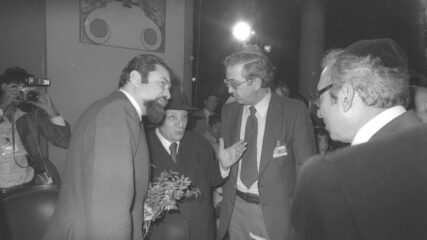
As a longtime confidant of Menachem Begin involved in the Herut party, Eliyahu Ben-Elissar was Israel’s first ambassador to Egypt. He was a staunch supporter of keeping the area of the West Bank — Judea and Samaria — under Israeli control. Later he became Israel’s ambassador to France and then the United States.

Hermann Eilts played a pivotal role in representing the U.S. to Egypt and vice versa in the vital 1973-1980 period when Egypt embraced Washington and turned away from Moscow, and made peace with Israel. Eilts knew Egyptian President Sadat as well as any American official in the period. He provides rich detail and vivid insights into Sadat’s often mercurial decision-making.

General Ghani el-Gamasy served as Egypt’s chief of staff during the October 1973 war, executed Egypt’s limited success across the Suez Canal, and negotiated with an Israeli counterpart, General Aharon Yariv, the details of the Kissinger-choreographed Kilometer 101 talks, which led to the January 1974 Egyptian-Israeli Disengagement Agreement. Gamasy was surprised when Sadat told him at Aswan then, “Egypt was making peace with the United States and not with Israel.” Gamasy to Yariv, “We (the Egyptians) are finished with the Palestinians.”
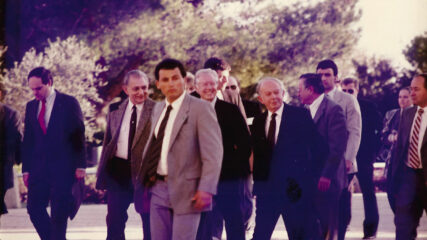
A life-long Israeli civil servant, Epi Evron was deeply engaged with Kissinger, Sadat, Meir, Rabin, Carter, Begin and others, as Egyptian-Israeli negotiations unfolded in the 1970s. One will find crisp in his interview insightful assessments of personalities, decision-making processes, and colorful vignettes.

Ashraf Ghorbal represented Egypt to the US for four years from 1968 to 1972 until Egypt restored diplomatic relations with the US in the wake of the October War. Ghorbal was Sadat’s Ambassador in Washington for 11 years until 1984. He credits Sadat with foresight in setting out and fulfilling his diplomatic objectives; breaking from the USSR, aligning Cairo with the US, harnessing US diplomacy under Kissinger and Carter to secure Sinai’s return to Egyptian sovereignty, and even if that meant signing agreements and recognizing Israel.
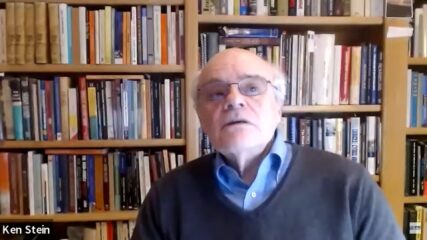
January 6, 2025 CIE President Ken Stein addressed “Jimmy Carter’s Middle East Legacies” during a webinar hosted by Scholars for Peace in the Middle East in cooperation with the Association for the Study of the…

January 9, 2025 Dan Senor, co-author of The Genius of Israel and Start-Up Nation, brought Center for Israel Education President Ken Stein on his Call Me Back podcast on Jan. 9 just hours after the…
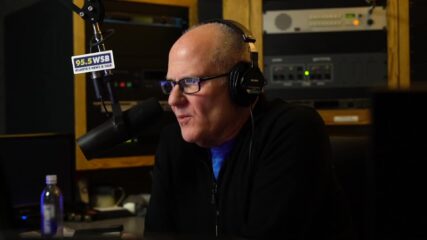
January 9, 2025 Ken Stein on “Scott Slade’s Georgia” on WSB radio to discuss Jimmy Carter on Jan. 9, 2025. WSB radio veteran Scott Slade interviewed CIE President Ken Stein about President Jimmy Carter and…
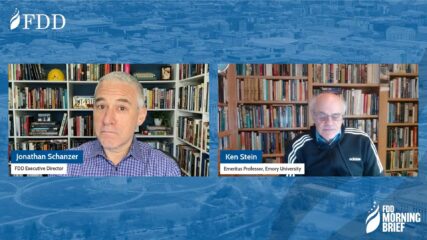
January 6, 2025 CIE President Ken Stein is interviewed about Jimmy Carter by Foundation for Defense of Democracies Executive Director Jonathan Schanzer on the “FDD Morning Brief” on January 6, 2025. Jonathan Schanzer: It’s now…
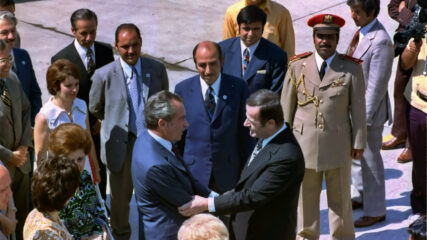
From 1970 to 1984, Khaddam served as Syria’s foreign minister, and later he was Syria’s decision-maker for actions in Lebanon. He recounts Syrian anger toward Egyptian President Sadat’s slow but continual bilateral engagement and recognition of Israel. He recalls how Syrian President Assad, after a four-hour meeting, refused Henry Kissinger’s invitation to attend the 1973 Geneva peace conference, not wanting to sanction the closeness Sadat was establishing with Israel and with Washington. These were the same reasons why Syria refused President Carter’s invitation to attend a similar Middle East peace conference in 1977. Khaddam says, “We were shocked by Sadat’s actions.”

Mustafa Khalil served as the primary Egyptian negotiator in tying up the Egyptian-Israeli treaty with Israeli Foreign Minister Moshe Dayan between September 1978 and March 1979. Though most of the talks took place in Washington, the final excruciating details were negotiated in difficult exchanges in Jerusalem between Jimmy Carter and Menachem Begin in the week before the March 26, 1979, treaty signing.

October 29, 1992 After learning Hebrew, David Korn rose to become chief of the political section while at the U.S. Embassy in Tel Aviv (1968 to mid-1971). Later, he was office director for northern Arab…
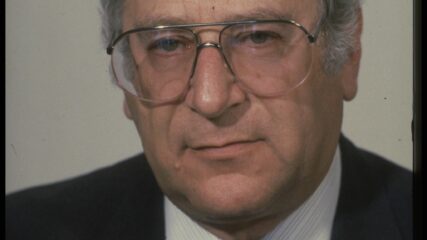
For years, Naftali Lau-Lavie worked closely with Moshe Dayan. His remarks here focus on Dayan as Menachem Begin’s foreign minister (1977-1979). He provides sumptuous detail on Dayan’s thinking and interactions with the Carter administration as it tried to force a Palestinian/PLO state on Israel in seeking a comprehensive Middle East peace.
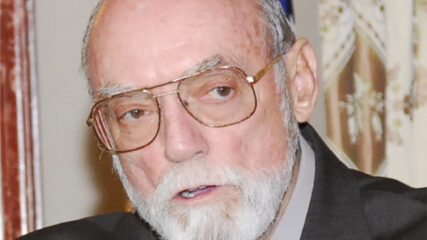
Sam Lewis was the U.S. ambassador in Israel when Menachem Begin was prime minister; his influence was most significant in keeping a taut and fraught Israeli-U.S. relationship from unravelling in the Camp David era. Lewis’ recollections and conclusions are enormously incisive.

From 1974 – 1981, Dan Pattir served as advisor on media and public affairs for Prime Ministers Yitzhak Rabin and Menachem Begin. Prior to working for two Prime Ministers, he Pattir worked in the Israeli media, and here he recalls in detail how Kissinger maneuvered the Geneva 1973 conference to keep the Soviets out of decision-making. Likewise he was intimate with the negotiating details and personal relationships that unfolded between Egypt and Israel in that period, especially 1977-1979 including his rendition of the September 1978 Camp David negotiations. Pattir concluded that the Carter administration, no matter how long it earnestly tried, it failed to grasp that neither Egypt nor Israel, were going to allow other Arab states or the Palestinian issue to interfere with their eagerly sought mutually beneficial bilateral agreement, before, during or after Camp David.
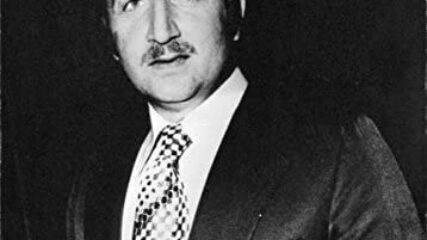
Jordanian Prime Minister Zaid Rifai lucidly explains Jordan’s role (inclusion and exclusion) in regional politics from before the 1973 October war to the late 1980s. His insights into Kissinger’s diplomacy and Arafat’s unfounded fear of being absorbed by Jordan are as worthy as they are insightful.

Moshe Sasson spanned four decades in his service to Israel, from the Haganah’s Arab Department of Intelligence in the 1940s to being Israel’s Ambassador to Egypt in the 1980s. He recollects analytically and in detail his conversations with Arab leaders at Lausanne as well as personal impressions of Moshe Dayan and Anwar Sadat. A tour de force.

From 1961 until the early 1980s, Harold Saunders was a key US State Department bureaucrat, an enormously capable word-smith. He had his hand in drafting the 1974-1975 ARab-Israeli Disengagement Agreements, Camp David Accords and E-I Treaty. His memory for detail enabled consequential decision-makers to understand the historical context of events and ideas such as ‘land for peace,’ ‘territorial integrity,’ ‘legitimate rights,’ and a myriad of diplomatic promises made spanning multiple presidencies.
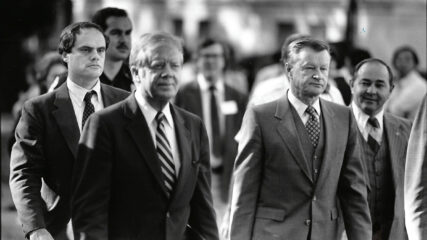
As a Democratic Party operative, Mark Siegel astutely helped Jimmy Carter win the 1976 election. He assisted in delegate selection and on the platform committee and kept Eugene MaCarthy’s name off the New York ballot. In the White House, as the administration’s liaison to the Jewish community, he abruptly resigned for being lied to by the administration. He explains Brzezinski/Carter disappointment with Sadat’s historic 1977 trip to Jerusalem because it channeled Arab-Israeli negotiations into a bilateral pathway. With that, the Brzezinski/Carter fear was realized. Any hope of Palestinian self-determination and Israeli withdrawal from the West Bank/Gaza Strip would be endlessly postponed in favor of Egyptian-Israeli national interests. He is frank in his descriptions of the ineptitude of those who worked in the Carter White House.

Omar Sirry provides intimate details of the diplomatic aftermath of the October 1973 War, the Kilometer 101 talks, Kissinger’s choreography of the December 1973 Middle East peace conference, and admiration for Sadat as the “modern Egyptian Pharaoh” who was not ever politically passive but took repeated initiatives for Egypt’s benefit.
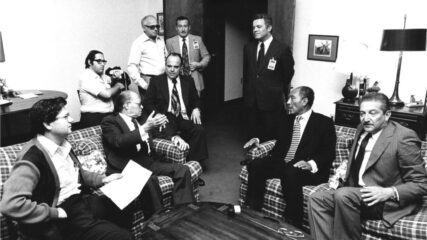
In the 1970s, US State Department Ambassador Michael Sterner was privy to Sadat’s preference for step-by-step diplomacy PRIOR to the 1973 October War. He is critical of the Carter administration for being too satisfied with only a bilateral Egyptian-Israeli Agreement.



















